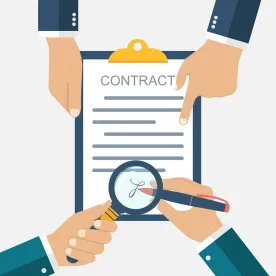The Eleventh Circuit Court of Appeals held recently that it could not compel arbitration demanded by a non-signatory to an arbitration agreement when the New York Convention applied. See Outokumpu Stainless USA, LLC v. Converteam SAS (c/k/a GE Energy Power Conversion France SAS, Corp., No. 17-10944, 2018 WL 4122807 (11th Cir. Aug. 30, 2018).
The Court considered an arbitration agreement between a buyer (Outokumpu) of three cold rolling mills from a seller (FLI), where that arbitration clause was invoked by a sub-contractor (GE Energy) of the seller. FLI had subcontracted with GE Energy to supply motors for the three CRMs. The motors failed. Outokumpu filed suit in Alabama state court; GE Energy removed to federal court; Outokumpu moved to remand; and GE Energy moved to dismiss the suit and compel arbitration. The District Court granted GE’s motions to dismiss and compel.
The Court of Appeals, reviewing de novo, reversed. The focal question before the Court of Appeals was “whether a non-signatory sub-contractor may compel arbitration against the buyer under that arbitration agreement.” Slip Op. at 2.
First it determined that the Convention on the Recognition and Enforcement of Foreign Arbitral Awards (the “NY Convention”) and Chapter 2 of the Federal Arbitration Act (“FAA”), 9 U.S.C. §§ 201, et seq., which implements the NY Convention, governed.
“An arbitration agreement ... arising out of a legal relationship ... which is considered as commercial...falls under the [NY] Convention. An agreement ... arising out of such a relationship which is entirely between citizens of the United States shall be deemed not to fall under the Convention unless that relationship involves property located abroad, envisages performance or enforcement abroad, or have some other reasonable relationship with one or more foreign states.” 9 U.S.C. § 202.
Defendant Converteam SAS, currently known as GE Energy Power Conversion France SAS, Corp., was a foreign corporation.
The New York Convention provides that “[e]ach contracting State shall recognize an agreement in writing under which the parties undertake to submit to arbitration all or any differences which have arisen or which may arise between them in respect to a defined legal relationship, whether contractual or not, concerning a subject matter capable of settlement by arbitration.” NY Convention, Art. II(1). The question was whether the parties before the court had agreed to arbitrate their dispute. Slip Op. at 14.
The Court of Appeals considered the subcontractor’s motion to compel with reference to 9 U.S.C. § 206 and a rigorous inquiry with respect to the four-factor test articulated in Bautista v. Star Cruises, 396 F.3d 1289 (11th Cir. 2005). Under 9 U.S.C. § 206, a court having jurisdiction under Ch. 2 of the FAA[1] “may direct that arbitration be held in accordance with the agreement….” And a party may compel arbitration under the NY Convention only if (1) there is an agreement in writing within the meaning of the Convention; (2) the agreement provides for arbitration in the territory of a signatory of the Convention; (3) the agreement arises out of a commercial legal relationship; and (4) a party to the agreement is not an American citizen or the commercial relationship has some reasonable relation with one or more foreign states. Bautista, 396 F.3d at 1294 n.7. The Court’s finding regarding the very first Bautista factor was determinative.
Under the New York Convention, the arbitration agreement must be in writing, see NY Convention Art. II(1), and “signed by the parties or contained in an exchange of letters or telegrams,” id. Art. II(2).
The Eleventh Circuit found that there was no agreement in writing between the parties before the court. Slip Op. at 15. GE Energy, while relying on an arbitration agreement in contracts between Outokumpu and FLI, was “undeniably not a signatory” to those contracts, but instead “was a stranger to the Contracts, and, at most a potential subcontractor.” Id. at 16.
Moreover,
“[p]rivate parties ... cannot contract around the Convention’s requirement that the parties actually sign an agreement to arbitrate their disputes in order to compel arbitration.” Id. at 16 (emphasis in original).
Therefore, “GE Energy cannot avoid U.S. and international arbitration law that require that the parties sign an agreement to arbitrate the dispute between them.” Id. at 17.
Of course, the Outokumpu decision is distinguished by the applicability of the New York Convention and Chapter 2 of the FAA, rather than Chapter 1 of the FAA. Hence, the Court noted, such theories as estoppel and third-party beneficiary could not be asserted by GE Energy in order to compel arbitration, as it might have if FAA Ch. 1 had governed. That is because “Congress has specified that the [New York] Convention trumps Chapter 1 of the FAA where the two are in conflict,” id. at 18; see 9 U.S.C. § 208, and the Convention’s requirement that the agreement in writing be signed by the parties in effect trumps the potentially broader Chapter 1 of the FAA, which “does not expressly restrict arbitration to the specific parties to an agreement.” Id. at 18.
[1] FAA § 203 provides that U.S. district courts have original jurisdiction over an action falling under the NY Convention.
And the Eleventh Circuit opined, based on the language of FAA § 205, that Congress intended that district courts assess their jurisdiction from the pleadings alone. That is, the determination with regard to jurisdiction would be distinct from the later examination of whether the arbitration agreement in question bound the parties before the court.



 />i
/>i

